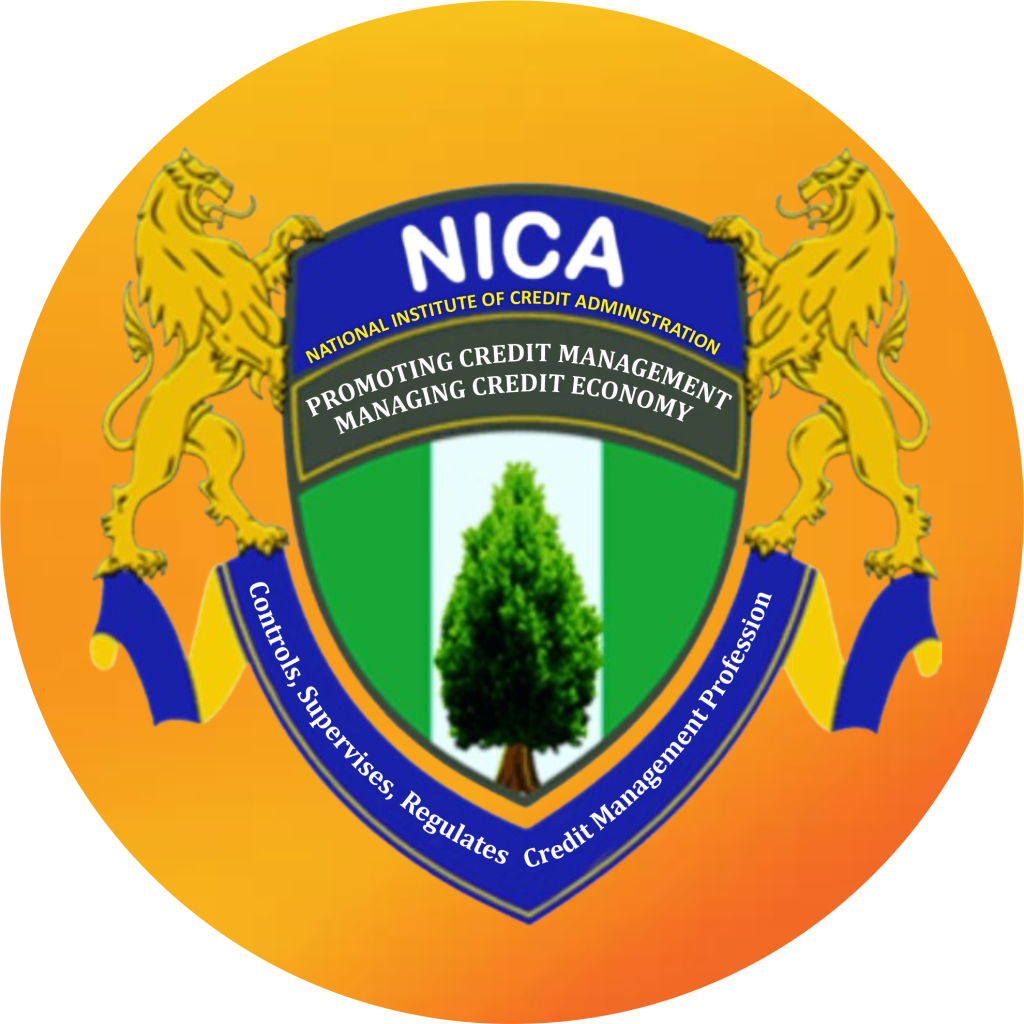NICA calls for strategic institutional collaboration to drive Nigeria’s economic transition to credit-based system

National Institute of Credit Administration NICA
The National Institute of Credit Administration (NICA), a chartered authority mandated with the regulation, supervision, and control of the credit management profession in Nigeria, commends the Federal Government’s commitment to revamping the economy through inclusive governance and citizen participation.
As Nigeria transitions towards a credit-based economy, NICA emphasizes the critical need for institutional collaboration, cooperation, and consultation amongst ministries, departments, and agencies of government. This approach is not only essential but a prerequisite for the effective implementation of economic programmes that are consistent, coherent, and free of regulatory conflicts.
In line with its statutory mandate—advancing credit economy practices through education, research, advocacy, and professional guidance—NICA calls on the Federal Government to foster synergy among economic transition officials to ensure that policies are harmonized and reflective of national interests.
Speaking on the matter in a statement, Prof. Chris Onalo, FICA, ICCF, PhD (Credit Management), stated, “The success of a credit-based economy lies in our ability to work together—across government institutions, professional bodies, private sector players, and civil society. We must abandon siloed approaches and build a framework that draws on collective expertise for the economic wellbeing of our people.”
NICA stresses that stakeholder engagement—especially with private sector leaders, civil society, and industry experts—is critical for building public trust and ensuring that all segments of the population are carried along in the transition process.
Additionally, the Institute warns against recycling outdated economic models under new labels. Rather, it advocates a blend of innovative and time-tested strategies that reflect today’s economic realities. Transparency, open communication, and accountability must underpin all reform processes to ensure measurable progress and public buy-in.
Key recommendations from NICA include development of clear and consistent regulatory and legislative frameworks for a credit-based economy; Establishment of a national credit infrastructure including credit bureaus, credit scoring systems, and a citizens’ credit information database; Promotion of financial literacy and credit education to ensure broad understanding of credit systems and the implications of credit default; Ensuring inclusive access to credit, especially for MSMEs and low-income households.
NICA reiterates that the dream of a strong, economically empowered Nigeria must rise above personal or sectional interests. Through strategic collaboration and collective action, Nigeria can emerge as a leading force in Africa’s enterprise and credit economy landscape.
“Let us not allow the errors of the past to impair our future. Together, through a collaborative and unified front, we can build a resilient and sustainable credit economy for the prosperity of all Nigerians,” Prof. Onalo added.
This is the vision of NICA—a Nigeria built on trust, transparency, and collective economic empowerment.




